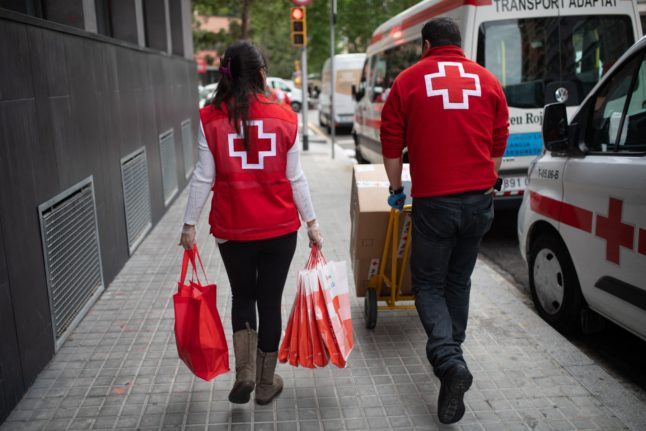If you are an EU citizen, you won’t need a visa to volunteer in Spain. Nor will you if you are a non-EU citizen volunteering for less than 90 days.
However, if you are a non-EU citizen who wants to do some volunteering and will be staying in the country longer than 90 days, you will need a visa in order to be legally able to do so.
The Spanish government includes volunteering under its broader study visa “for stays exceeding 90 days for studies, training, internships or voluntary work. This visa may also be issued for stays for au pairs and for conversation class assistants,” according to the government site.
More specifically, the visa is offered to those wishing to partake in “volunteer services in the framework of programmes pursuing public interest goals.”
Sounds simple enough, right? Apply for a study visa and you’ll be allowed to waltz right into Spain?
READ ALSO: Mythbuster: Can you really ‘cheat’ the Schengen 90-day rule?
Not exactly. In order to apply and receive this sought after visa (one of a few ways for non-EU citizens to stay longer than 90 days in Spain) you’ll need to fulfil certain criteria and do a number of things to apply.
Here’s what you need to know.
Volunteering conditions
To qualify for a visa as a volunteer in Spain, you’ll need to meet the following criteria:
- Not to be an EU citizen, nor from the European Economic Area or Switzerland, or a family member of citizens of these countries to whom the Union citizen regime applies.
- Not to be listed as ‘rejectable’ in any country with which Spain has signed an agreement.
- Have sufficient financial means to cover the expenses of your stay and return to your country and, where appropriate, those of your relatives, according to the following amounts:
- For its support, monthly, 100 percent of the IPREM, unless you can prove that your accommodation has been paid in advance for the entire duration of the stay.
- For the support of their relatives, monthly, 75 percent of the IPREM for the first family member and 50 percent of the IPREM for each of the remaining people, unless you can prove you have paid in advance for the accommodation for the entire duration of the stay.
- Have paid the processing fee.
- Have public or private health insurance contracted with an insurance company authorised to operate in Spain.
- In the case of underage volunteers who are not accompanied by their parents or guardians, you must have their authorisation, and proof of the organisation, company or body responsible for the volunteering activity and the expected period of stay.
- Perform volunteer services within the framework of an agreement signed with the organisation in charge of the volunteer program that reflects the resources available to cover your trip, food and accommodation during your stay.
- That the organisation has taken out liability insurance for its activities. This requirement will not be required of volunteers who participate in a European Voluntary Service program.
READ ALSO: Your questions answered about the EU’s 90-day rule
In the event that the length of stay exceeds six months:
- You must have no criminal record in Spain or in previous countries of residence during the last five years for crimes existing in the Spanish legal system.
- You do not suffer from any of the diseases that may have serious public health repercussions in accordance with the provisions of the International Health Regulations of 2005.
Necessary documents to apply
You will need the following documents to prove you meet the requirements and to complete your application:
- Visa application form, in duplicate, completed and signed by you or a guardian if you are a minor.
- A valid passport or travel document, recognised as valid in Spain, with minimum validity of the period for which the stay is requested.
- Relevant documentation proving that you have the financial means for the period requested and for the return to the country of origin.
- In the case of being a minor, the express authorisation of parents or guardians stating the organisation, charity or body responsible for the volunteering activity and the expected period of stay.
- Proof that you have health insurance.
- Agreement signed with the organisation in charge of the volunteer program that includes a description of the activities and conditions to carry them out, schedule to be met, resources available to cover the trip, food and accommodation.
- Documentation proving that you have been admitted to a public or private company or to an vocational training centre officially recognised in Spain.
If the length of stay exceeds six months:
- A medical certificate.
- If you are of legal age, a criminal record certificate and/or background check issued by the authorities of the country of origin or the country in which you have resided for the last five years.
Where and how to apply
According to the EU’s immigration portal website, you must apply for the visa personally at the Spanish embassy or consulate in your country of residence.
The fee is €60 euros, to be paid along with the visa application.
The EU immigration portal estimates the processing time is one month from the day after the submission of the application. Once the visa is granted, the applicant has two months to collect the visa where he/she applied for it.



 Please whitelist us to continue reading.
Please whitelist us to continue reading.
Member comments